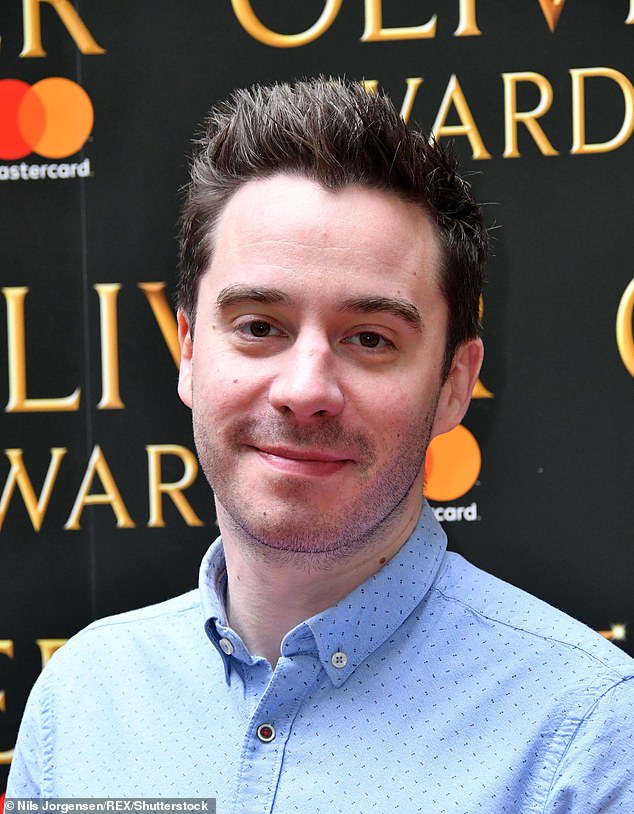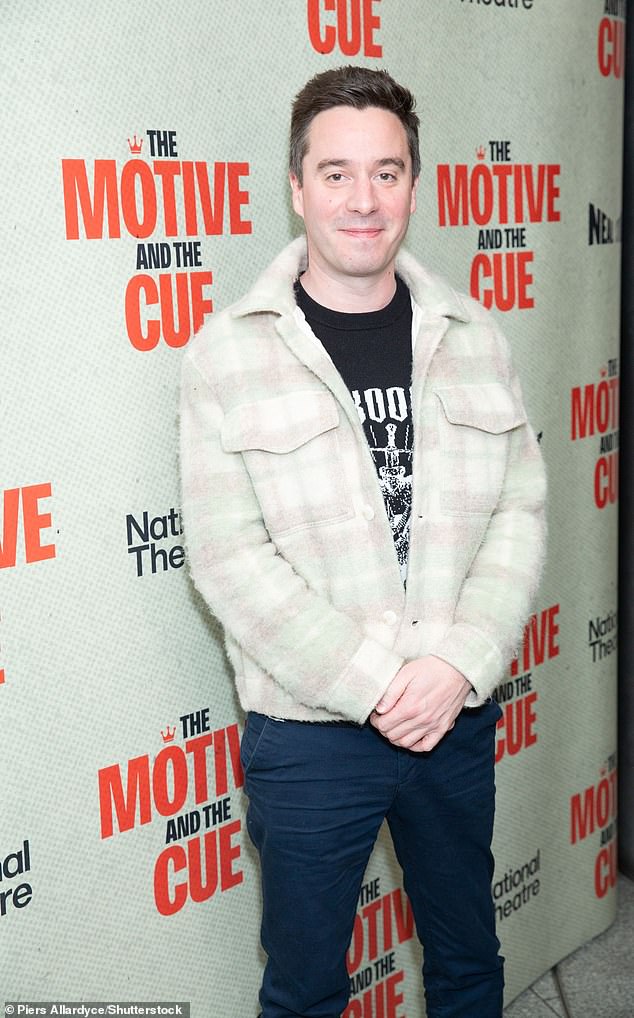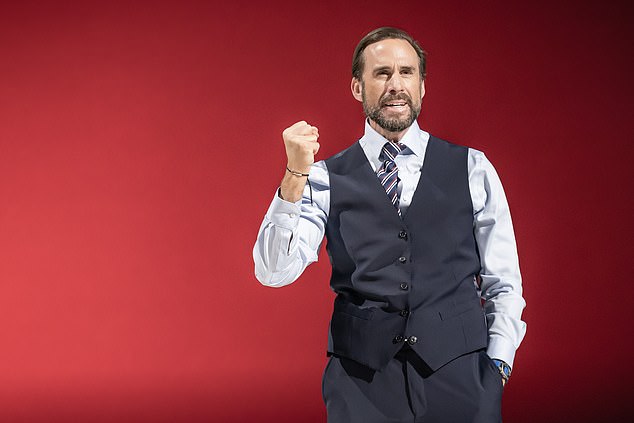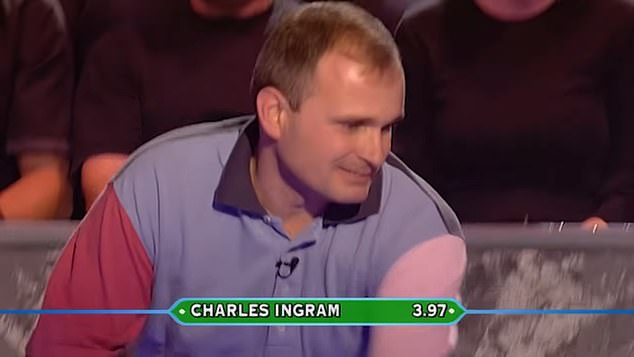
Sherwood screenwriter James Graham has opened up about attending ‘Workaholics Anonymous’ for his ‘addiction’ – which he claims is not treated as seriously as when people are hooked on drugs and alcohol.
The 41-year-old said he first accepted that he had a problem when he caught himself lying to loved ones about ‘stupid things which did not even need lying about’, including what time had had woken up in the morning to start working.
If a friend or family member told him he looked tired and asked what time he had woken up, he would respond: ‘Oh, you know, eight’ when it was actually 5am. He also confessed that he would go a whole day without eating.
Graham, who along with BBC crime drama Sherwood has written hit plays Dear England, Ink and Labour of Love, was diagnosed with the addiction more than a decade ago.
Speaking to Lauren Laverne on the BBC’s Desert Island Discs, Graham said: ‘You hear that phrase [workaholic] a lot [as though] it is a habit that you have, not an actual sickness.
‘But it is … no way different really from [addictions to] drink or drugs or sex or anything else. It’s a pattern of behaviour that is slowly sort of killing you. People spoke of the people they had lost due to it.’
BBC Sherwood screenwriter James Graham (pictured) has opened up about attending ‘Workaholics Anonymous’ for his ‘addiction’




Graham said he was diagnosed with the addiction about a decade ago and has sought help
He added: ‘I knew something wasn’t quite right in my late twenties. I would go into periods where I would be far too isolated from friends, or self-sabotage relationships as soon as they became intimate and important, and I was just working around the clock continually, but without really looking after myself.’
Graham said that for workaholics, too much of their sense of self comes from their working life which led to difficulties with his relationships and intimacy.
‘All of my self-esteem, all of my validation, all of my happiness and joy was coming from my work and I didn’t allow myself to believe there was space for anything else,’ he explained.
He said he eventually spoke to an expert who ‘probably saved him’.
‘She listened to me wanging on about feelings and she eventually just said: ‘Why aren’t you wearing a coat?’ It was winter and it was really cold outside.
‘I had a flimsy paper thing on from the summer. I just hadn’t had the time at that point to go out and buy a winter coat.
‘I brushed it aside, but she was obsessing about it, going: ‘You are starting to do OK. Why can’t you go and take an hour to go and buy a nice coat?’




Graham is pictured with Bally Gill, David Morrissey and Joanne Froggatt at the screening of Sherwood in Nottingham in June 2022




Graham’s portfolio also included Dear England, a play about Gareth Southgate’s time as England manager. Joseph Fiennes (pictured) plays Southgate




Graham also wrote the drama Quiz, which tells the story of Major Charles Ingram, a Who Wants to be a Millionaire? contestant who was found guilty of cheating on the game show
‘I was getting really frustrated with her saying: ‘That’s not the issue here’.
‘And that was obviously to her symptomatic of an inability sometimes to look after myself.’
Workaholics Anonymous was founded in 1983 by a financial planner and a teacher – and it describes itself as ‘patterned after Alcoholics Anonymous’.
It’s base is in California but meetings are held across the UK, including in London, Reading, Liverpool and Bognor Regis.
Similar to Alcoholic Anonymous, the programme consists of 12 steps – the first being the person having to admit they are ‘powerless’ over work and that their lives have become ‘unmanageable’.
The Workaholics Anonymous website poses 20 questions including: ‘Are you more drawn to your work or activity than close relationships, rest, etc.?’
The website says: ‘Workaholics Anonymous is a fellowship of individuals who share their experience, strength, and hope with each other that they may solve their common problems and help others to recover from workaholism.
‘The only requirement for membership is the desire to stop working compulsively.’
Graham is not alone, however. In 2017, António Horta-Osório, the head of Lloyds Banking Group for a decade, told The Times: ‘I thought I was Superman. I felt I could do everything.
‘Before this, I had thought that the less sleep and the more work, the better.’
He ended up having to spend nine days in the Priory mental health clinic, where he took sleeping pills to catch up on sleep and prevent a breakdown.
Graham’s acclaimed TV productions also include Quiz, the drama based on Major Charles Ingram, a Who Wants to be a Millionaire? contestant who was found guilty of cheating on the game show.
The dramatist was born in Kirkby-in-Ashfield, Nottinghamshire, in 1982 and later studied drama at Hull University. It was here that he wrote his first play Coal Not Dole! which he took to Edinburgh fringe.
After graduating, he worked as a stage doorkeeper at the Theatre Royal in Nottingham and his first London premiere came in 2005 at the Finborough Theatre.
In 2020, he was awarded an OBE for services to drama and young people in British theatre.
His Dear England play, which stars Joseph Fiennes as Gareth Southgate, tells the manager’s story from when he took over from Sam Allardyce in 2016 right up to England’s World Cup in Qatar in 2022.
It also includes a flashback to when he missed a penalty in Euro 96 and touches on important topics such as the racism that members of his squad faced after missing their own penalties at Euro 2020.